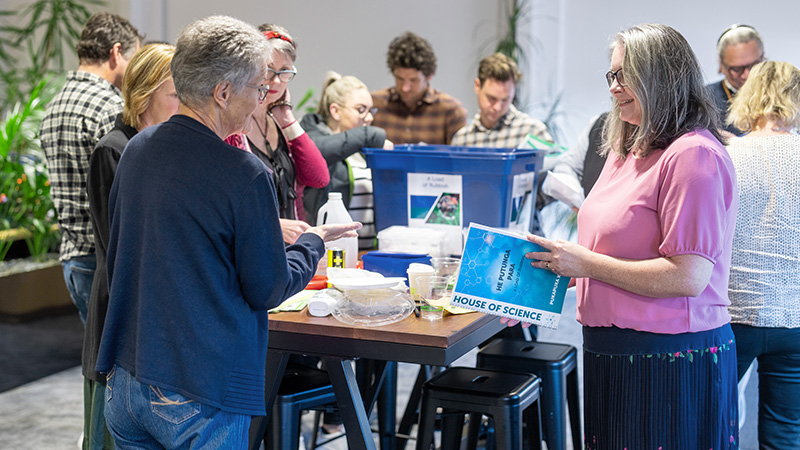Scientifically literate kids – an investment in the future
Published in Bay Buzz
It’s been, let’s say, a few years since I was in school but one thing which hasn’t changed is the importance of science.
To be honest I remember the subject being quite challenging at school, but it gave me a solid enough grounding to complete a Bachelor of Science at University and set me on the course I have taken in my working life. All these years later I have retained a fascination of nature and its amazing cycles.
At 3R, and in the broader sustainability sector, science is crucial to solving problems like waste, pollution, climate change and creating a more sustainable world with a circular economy. Even if you don’t go into a science-based career, having a good grounding in the subject equips you to think critically – something which is vital in the world of misinformation, disinformation and ‘fake-news’ we now live in.
Unfortunately, in New Zealand, the level of science literacy among new high school students is not what it should be. Reporting by the Education Review Office last year said, “Only 20 percent of year eight students are achieving at the level we would expect.”
Happily, there are those working hard to help equip primary and intermediate school teachers so they can make learning science engaging, fun and easier.
The House of Science was founded nine years ago by former biochemist and secondary school science teacher of 15 years, Chris Duggan, with the aim of improving science literacy in children’s early school years. During her time as a teacher she became increasingly concerned with the lack of science literacy among new high school students and decided to do something about it.
The organisation, which is now run in 17 regions around the North Island (including Hawke’s Bay) and in Christchurch, creates comprehensive, bilingual teaching kits which schools can borrow for a fortnight at a time.
They are designed to make science fun and engaging for the children. They also make teaching easier, with all the lesson planning and resources included, with input from experts such as Scion.
It was on a recent work visit to Scion that the huge potential of science for solving problems was reinforced to me. While I can’t talk about the specifics of the projects I was lucky enough to be shown by the Scion researchers, what I can say is they are truly inspiring and sometimes just plain mind-blowing. Science really can change the world for the better.
It’s a world which has become complex – far more complex than when I was in primary school. And, while science has undoubtedly been used to unwittingly create some of the challenges we face – environmental and social alike – it’s vital to solving them, and more.
The key is raising the next generations to have a solid grounding in science.
I’ve never been a teacher, but I can imagine getting a classroom of children to engage with science in a way which will help them learn isn’t easy, which is why I was so impressed with the work House of Science is doing.
I’m personally really proud that 3R has gotten behind House of Science to sponsor the “A Load of Rubbish/He Putunga Para” kit in Hawke’s Bay. The kit introduces children to the circular economy and the waste hierarchy, with some fun, hands on real-world activities.
There are a variety of kits so children can learn about microbiology, recycling and resource management, basic chemistry, and water analysis among other topics. Some kits have a real-world application, such as identifying different types of recyclables, while others let the children make their own simple polymers. They are designed for curriculum levels 1-4, so teachers can go into different levels of depth and complexity depending on the level their pupils are at.
Sponsorship is vital to the success of the programme. As Hawke’s Bay Branch Manager Jenny Dee told me, getting schools interested isn’t the challenge but rather securing funding to create and service enough kits is. If your business would like to get involved, I encourage you to reach out to House of Science in Hawke’s Bay.
We all want a better future for the planet and the people and animals which live on it, and I firmly believe science will help us get there. And, it’s the next generation of scientists which are going to be part of those solutions.







